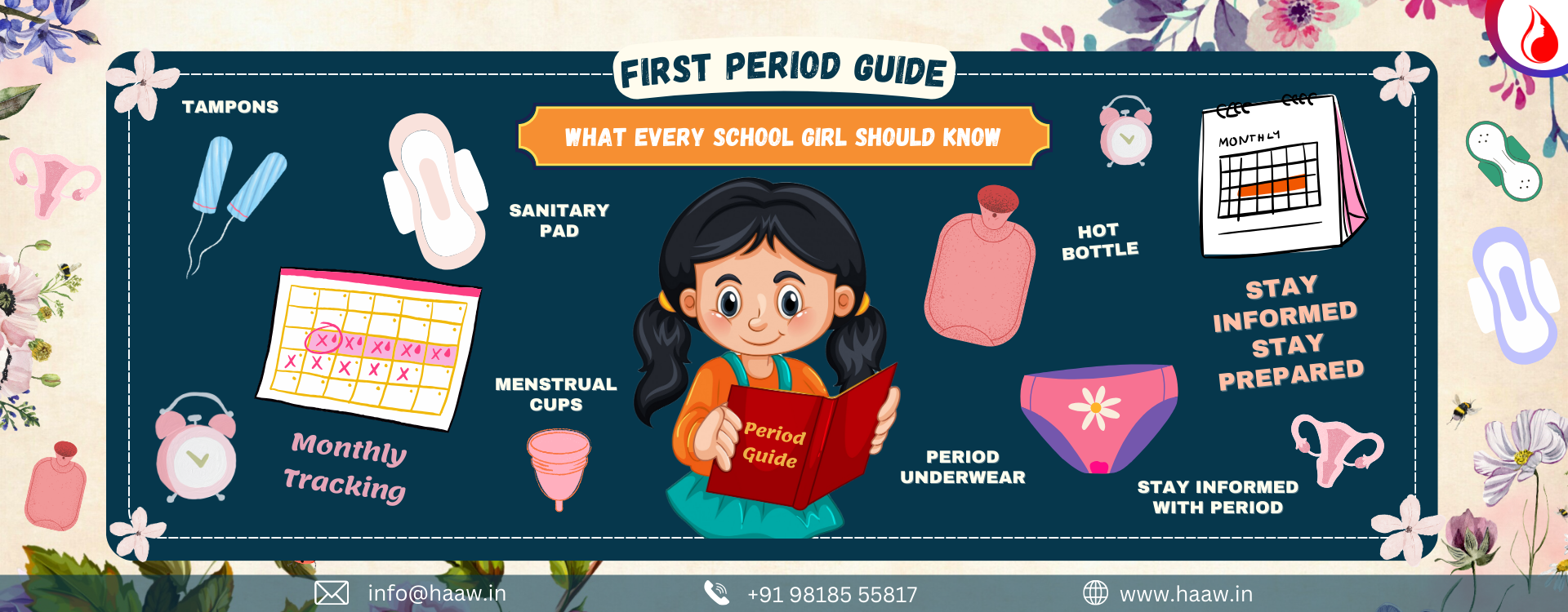
Your period is a significant milestone to the life of an adult. It is a sign that your body is growing and preparing for new phases of development. While it can be scary in the beginning, understanding what to expect and how to handle it makes the experience easier and more bearable.
What is a Period?
A period is when the body releases blood from the uterus through the vagina. It happens about once a month and is part of a natural cycle. The cycle usually lasts around 28 days but can be a little shorter or longer. Bleeding lasts for about 3 to 7 days and can be light or heavy, depending on the person.
When Will I Get My First Period?
Typically, the majority of girls get their first period at 9 to 16 years of age. The timing will differ depending on various factors such as genes, physical development, and general health. Some of the signs that your first period is near are:
- Breast development – Normally begins 1-2 years prior to your period.
- Pubic and underarm hair growth – Occurs in conjunction with other changes in puberty.
- Vaginal discharge – Clear or white liquid that shows up in your undies 6 months to a year prior to your period.
What Does a Period Feel Like?
Periods feel different for all people, but some of the following are what most people feel:
- Light to medium bleeding (occasionally at first brownish or light reddish)
- Feeling bloated or heavy in the stomach
- Mood swings, being irritable, or feeling more emotional than normal
- Fatigue, headaches, or slight back pain
- If you have really heavy pain, really heavy bleeding, or periods that last more than 7 days, speak to a parent, guardian, or doctor.
These were not taboos but synchronizing with natural cycles to ensure long-term health and fertility.
How to Prepare for Your Period
Alternative Period Products
There are many different ways to manage your period. You can use what suits you best:
- Pads – Absorbent, soft sheets that adhere to your underwear. Good for newbie’s.
- Tampons – Cottony small things inserted into the vagina to soak up blood. Good for swimming and sports.
- Menstrual Cups – Adjustable, reusable cups that hold blood in the vagina.
- Period Underwear – Underwear with inner absorbent layers to soak up period flow.
What If I Get My Period at School?
It's totally normal, and you're not the only one! Here's what to do:
- Remain calm – Lots of girls go through this, and schools typically have products in the nurse's office.
- Go to the bathroom – Wear a liner or pad. If you don't have one, go ask a teacher or friend.
- If you spill on your clothes – Wear a sweater around your waist or ask to call home for a change of clothes.
- If you have cramps – Drink warm water, stretch, or take deep breaths to relax.
Period Myths Debunked
- Myth: You can't exercise during your period.
- Reality: Walking or yoga actually relieve cramps and bloating.
- Myth: You shouldn't swim during your period.
- Truth: You can swim while wearing a tampon or menstrual cup.
- Myth: Periods are embarrassing or gross.
- Truth: Menstruation is a normal and healthy process that all girls experience!
When to See a Doctor
If you experience any of the following, see a doctor:
- If period arrive very early in age.
- Your period hasn't arrived by age 16.
- Your cycle exceeds 7 days or is excessively heavy.
- You experience very painful cramps that hamper everyday activity.
- Your cycles are wildly irregular beyond the first year.
Breaking the Stigma
Periods are a natural part of life, and there's no need to be embarrassed. Speak frankly with friends, family, or teachers if you have questions. The more we talk about periods, the less we will have to continue to keep it a secret, and every girl will feel empowered and ready.
Remember: Your first period is only the start of an amazing journey towards womanhood. Stay educated, be ready, and above all—welcome this natural transition with confidence!